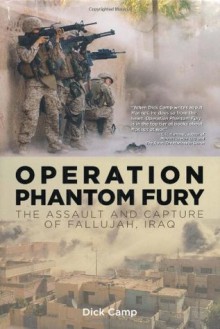Wednesday morning, March 31, 2004: a Blackwater private security firm convoy is ambushed on the streets of Fallujah, Iraq. Four American contractors are killed, their bodies desecrated and hung from a bridge over the Euphrates River. Long-simmering tensions between insurgents and American forces...
show more
Wednesday morning, March 31, 2004: a Blackwater private security firm convoy is ambushed on the streets of Fallujah, Iraq. Four American contractors are killed, their bodies desecrated and hung from a bridge over the Euphrates River. Long-simmering tensions between insurgents and American forces had boiled over.In Baghdad, the Coalition Provisional Authority’s chief ambassador, L. Paul Bremer III, proclaims that the “deaths will not go unpunished.” Brigadier General Mark Kimmit, deputy operations director for the Joint Task Force in Iraq, states, “We will hunt down the criminals. We will kill them or we will capture them . . . and we will pacify Fallujah.” American retaliation came the following Monday, April 4. In this first battle for Fallujah, Gen. James Mathis and his Marines had almost taken the city when increasing pressure from the Iraqi Governing Council in Baghdad over noncombatant civilian casualties resulted in Bremer announcing a unilateral cease-fire for April 9; Operation Vigilant Resolve, the first battle for Fallujah, ended with the insurgents still in control of the city. U.S. forces withdrew on May 1, turning the defense of Fallujah over to a local Iraqi force, the Fallujah Brigade. By September the brigade had disbanded, and its American-supplied weapons were in the hands of the insurgents. The stage was set for a second battle for Fallujah, Operation Phantom Fury, which commenced the night of November 7, 2004.Over the next month and a half, U.S. and Iraqi forces led by the U.S. Marines would take back Fallujah. The first week of the battle was relentless: bloody street-by-street, house-by-house, and room-to-room combat against entrenched insurgents. Author Dick Camp tells this riveting story through the words of the Marines who fought there, drawing upon dozens of interviews with veterans of Operation Phantom Fury. The result is a comprehensive and exciting ground-level look at a
show less

